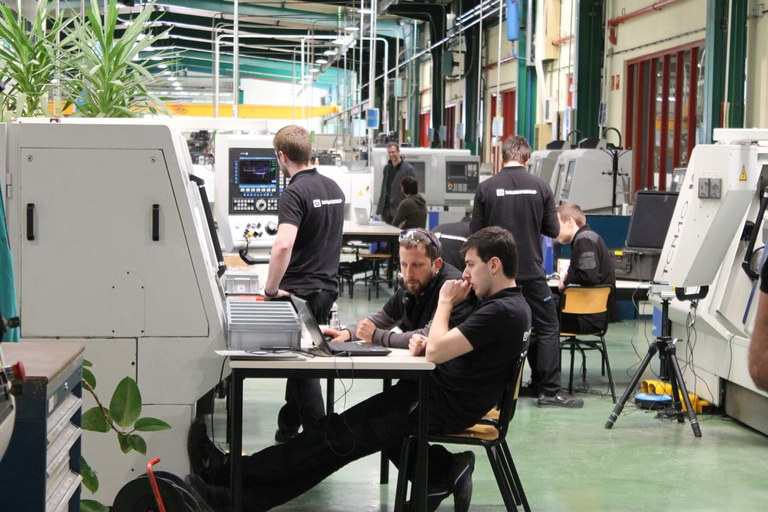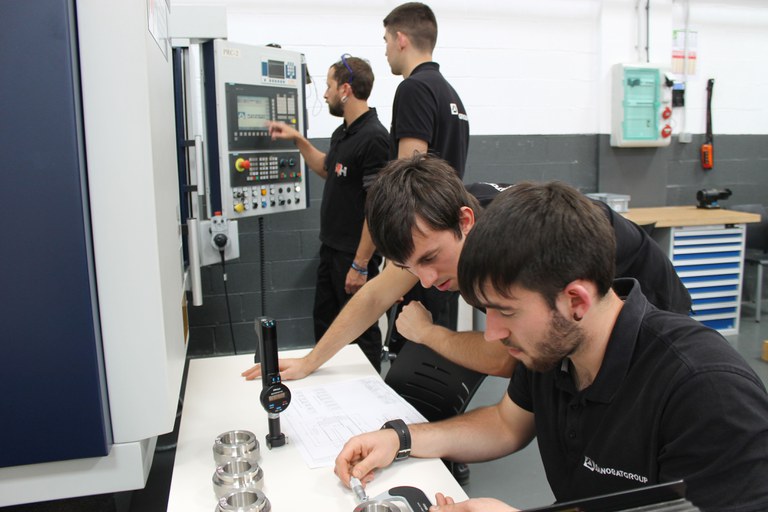Dual Vocational Training
Companies that are interested in hosting apprentices in the Dual model, can contact lanpoltsa@imh.eus or call 943 74 41 32 extension 2635 (Lan Poltsa).
Intensive Dual Vocational Training
Vocational training students who wish to do so can combine studies and work through an annual agreement signed with a company. The student will become a hired worker of the company and both a company tutor and a school tutor will monitor his learning progress. The main characteristics of dual vocational training are as follows:
- The Dual education programme is reflected in an agreement between the training centre, the company and the participating students.
- The training plan is designed by the training centre, in collaboration with the company.
- Dual Vocational Training is mainly aimed at second year students of higher vocational training cycles.
- Work activity lasts for one year and is based on an apprenticeship contract or a grant.
- The student must register in Lanbide and be exempt from the on the job training module.

Advantages of the Dual model for students
- Signing a work contract
The student/apprentice signs an apprenticeship contract, he receives a salary based on the corresponding labour agreement and pays contributions to the Social Security System. Consequently, the apprentice gains financial independence. - Personal self-assertion
The experience in the company means greater responsibility, which translates into higher academic performance and is reflected in attitudes such as dedication, collaboration, commitment, initiative or participation. - Immersion in the company
On the one hand, students acquire a global and comprehensive vision of the company, its organization and operation and on the other, they widen their circle of professional relationships. - Personalised monitoring
Student support is essential, hence the importance of monitoring. Each student has two tutors: one at the company and the other at the IMH.

Advantages of the Dual model for companies
Designed for the company
- Studies designed from and for the company, using company-specifics as a starting point to optimise staff training. Totally adapted to different needs: generational shift, creation of new positions, internal promotion, new products, etc.
Customised technician
- The company is actively involved in training the professional to prepare a “made-to-measure” technician fitted to the project. The future technicians are put forward by the company (internal promotion) or selected by the company from a list of prospective students.
- The student gets to know the company as a whole, as well as the tasks to be carried out. In addition, he can alternate different positions within the company, which allows versatility.
- There are no incompatible habits learned in other companies or institutions.
- Better knowledge of the student/worker towards their future evaluation in the structure of the company.
- Reliable personnel selection, avoiding other usual recruitment processes.
- Highly interested and motivated individuals with a positive attitude.
- More information: Regulations and Guide-Summary of the Basque Government (FORMACIÓN PROFESIONAL DUAL EN RÉGIMEN DE ALTERNANCIA)




